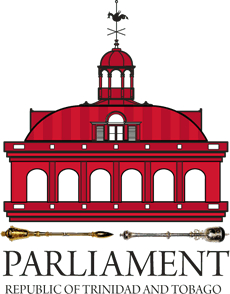Improved Legal Aid Services……Duty Counsel System to be implemented soon…
The Senate will soon commence debate on the Legal Aid and Advice (Amendment) Bill, 2011.
The full text of the Bill is available in PDF format on this website, you can download it via this link . You may also place your comments directly on this Bill page, which can be accessed here.
The following is a brief explanation of some aspects of the Bill
This Bill will allow for the establishment of a panel of attorneys to provide immediate legal representation for minors and suspects to capital offenses. The Bill also widens the scope of persons eligible for legal aid.
What is Legal Aid?
Legal Aid is the provision of assistance to people otherwise unable to afford legal representation and access to the court system.
The Legal Aid and Advisory Authority was established on July 01, 1976 with the mandate “…to make legal aid and advice in Trinidad and Tobago available to persons of small and moderate means, to enable the cost of legal aid or advice granted to persons to be defrayed wholly or partly out of moneys provided by Parliament, and for purposes connected there with.”
Who can apply for Legal Aid?
Any Member of the public is entitled to access the services of the Legal Aid Advisory. However, persons may only qualify for legal representation after a statutory means test is done to determine their eligibility based on disposable income, and capital ownership.
What are the key features of this proposed legislation?
The Bill seeks to make amendments to the Legal Aid and Advice Act 7:07.
- Empowers the Director of the Legal Aid and Advisory Authority to prepare and maintain panels of Attorneys-at-law to be known as Duty Counsel to provide immediate legal assistance to a minor or to a person detained on suspicion of having committed a capital offence before a court appearance. The Act also establishes the procedure for representation for suspects by Duty Counsel. There is thus no need for the suspect (as defined by the Act) to visit the Legal Aid Advisory Authority or to financially qualify in order to utilize the services of a Duty Counsel.
- Where a suspect (as defined by the Act) is detained, the Act mandates a senior officer in charge in the police station to inform the Legal Aid Advisory Authority of the following:
- Where the suspect is a minor his/her name and age;
- The nature of the offense; and
- The location where the suspect is being held.
- Eliminates the time limit of three (3) months after committal for a person committed for trial to apply to the court for legal aid.
- Amends the definition of disposable income under the Act and amends qualifications for the granting of legal aid.
Authorizes the Director of the authority to approve an application for legal aid in “extenuating circumstances” even if the applicant does not meet the necessary requirements
- Removes the period of six months residency required for a person to be eligible to receive legal advice.
- Increases the fee to access legal advice to be increased from ten dollars $10 to five hundred dollars $500.00 except where the Director is satisfied that the person is unable to afford the payment.
- Increases the fees payable to Attorneys-at-Law assigned to persons in receipt of legal aid and advice.
- Provides for the payment of fees to Duty Counsel.
- Allows legal aid to be granted for proceedings before the Environmental Management Commission.
Important issues for consideration:
- Duty Counsel not available to all suspects, only to minors and persons suspected of committing a capital offence.
- Sufficiency of the fees payable to Attorneys-at-Law under the Act.
- Availability of additional funding for payments to Attorneys-at-Law.
- Act does not specify the qualifications of Duty Counsel.
- Should Legal Aid be provided to non-residents? Should legal aid only be provided to non-residents in defined circumstances?
- Can “extenuating circumstances” be defined?
- Affordability of increased fee payable by a person seeking legal advice.
